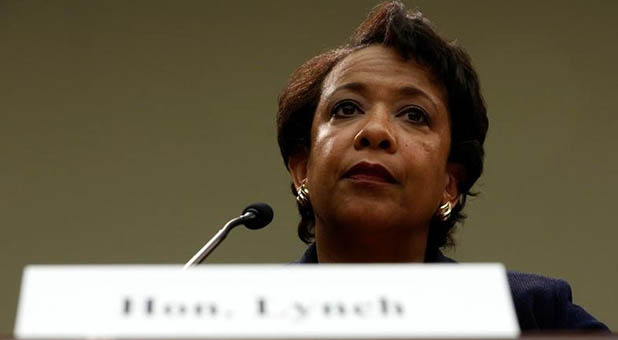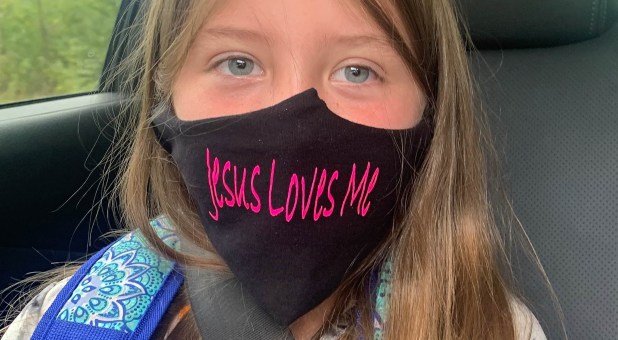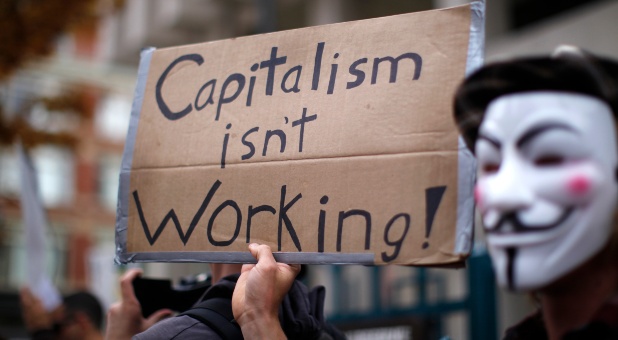“At this point, the American people and Congress are owed answers.”
In a single sentence, that is the message Senate Judiciary Committee Chairman Chuck Grassley had for Attorney General Loretta Lynch in a letter he sent Monday afternoon. And, by his estimation, there are a lot of questions left unanswered at this point.
“I am writing in regard to the recent news reports that indicate the Federal Bureau of Investigation asked the Department of Justice to open an inquiry into the Clinton Foundation on public corruption grounds, and the Public Integrity Unit declined to do so. Reporting also indicates that three ‘field offices’ agreed that the DOJ should pursue an inquiry into the Clinton Foundation. Other reports claim that one year prior to the FBI’s request, the DOJ had already refused a previous attempt to open a case with respect to the Clinton Foundation.
“Indeed, in January 2016, reports indicated that the FBI investigation in Secretary Clinton’s use of a non-government server and personal email for official business had expanded to Clinton Foundation donations and their impact on State Department business. Despite that report, Director Comey refused to answer Chairman Chaffetz of the House Oversight and Government Reform Committee as to whether the FBI’s recent criminal investigation into Secretary Clinton’s email use also extended to the Clinton Foundation.”
Grassley points out in his letter that in May, he raised “several questions” of his own about the Clinton Foundation, and those questions have also gone unanswered. He then offered a bundle of examples of potential Clinton Foundation corruption that have yet to be investigated by the Justice Department.
These include:
- Long-time aide Huma Abedin’s connections to the State Department, Clinton Foundation and Teneo Holdings;
- A group of Swedish companies that received a reprieve from Iran sanctions after donating millions to the Clinton Foundation;
- The Clinton Foundation’s ties to a number of people involved in the Russian acquisition of Uranium One;
- Numerous businesses that donated to the Clinton Foundation while lobbying the State Department;
- Nearly every country that has donated to the Clinton Foundation saw increases in the number of weapons deals approved by the State Department; and
- A number of foreign donations to the Clinton Foundation were not reported and/or reviewed by the State Department.
“While all of these circumstances are not proof of wrongdoing, they do raise reasonable suspicions and undermine the public’s confidence in the integrity of the State Department’s operations during Secretary Clinton’s tenure,” Grassley wrote. “The American people are entitled to reassurance that these matters have received thorough and objective investigation. Yet, it appears that the DOJ has turned a blind eye and refused to investigate.
“According to reports, tens of millions of dollars flowed from parties with business with the federal government to the Clinton Foundation and the Clintons themselves. All of these donations should have been disclosed in full, but those reviewing the disclosures had no chance to ensure total compliance with the memorandum of understanding process because the Clinton Foundation failed to disclose all donations.
“According to the Office of Government Ethics, federal law requires that executive branch employees be disqualified from matters that have a direct and predictable effect on the employee’s own financial interests or the financial interests of those persons or organizations with which the employee is affiliated, such as a spouse, unless the employee first obtains an individual waiver or a regulatory exemption applies. News reports have brought to light a highly suspect pattern of conduct where money flows from interested parties in transactions to the Clinton Foundation with a resulting favorable decision by Secretary Clinton’s State Department on those very matters. The money, the timeline, the interactions between State Department, Clinton Foundation, and Teneo personnel, the joint employment of some senior officials by those entities, and the resulting decisions made by the State Department paint a very suspicious picture. It is difficult to understand why these circumstances would not warrant any inquiry.”
The senator noted that numerous news reports, citing unnamed law enforcement officials, state that multiple field offices asked the DOJ to open an inquiry into the relationship between the State Department and the Clinton Foundation, but the DOJ declined to do so, citing its own investigation a year earlier that had concluded there was insufficient evidence. So, he asked a series of new questions of Lynch, which he said he expects her to answer:
- On how many occasions has the DOJ declined to open Clinton Foundation inquiries?
- When was each inquiry opened into the Clinton Foundation? Which DOJ component opened the inquiry?
- Were you or Director Comey briefed on each inquiry? If so, when? If not, why not?
- Please list the dates and all DOJ personnel who were involved in each declination decision. Specifically, were you or Director Comey involved or otherwise briefed on the declinations?
- If any political appointees from the DOJ were involved in the decision-making process, was there any discussion of whether recusal or the appointment of a special counsel was warranted? If so, please provide all related records. If not, why not?
- According to Director Comey, the FBI was able to recover thousands of work-related emails deleted from Secretary Clinton’s non-governmental server in the course of the investigation regarding the improper handling of classified information. Did DOJ personnel involved in evaluating whether to open a public corruption case regarding the Clinton Foundation review these recovered emails as part of their evaluation? If not, why not?
- Is any component of the DOJ currently involved in an inquiry into the Clinton Foundation? If so, which component and when was the inquiry initiated?
- For each inquiry into the Clinton Foundation, were agents and employees required to sign non-disclosure agreements? If so, please provide a copy each agreement.
Grassley gave Lynch until Aug. 29 to respond to his questions. He has not indicated whether or not he intends to launch a hearing into the matter; given the House Judiciary Committee’s recent activities related to Clinton and her emails, it seems unlikely.
See an error in this article?
To contact us or to submit an article





















